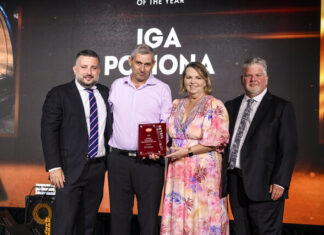During my candidacy for Noosa Council, I made a clear promise to the electorate: to ensure Short-Term Accommodation (STA) local laws were enforced. While I wasn’t fortunate enough to be elected, I still feel an ongoing obligation to advocate for those who continue to be adversely affected every day by these commercial businesses in residential areas.
To clarify, I am not referring to homeowners renting out rooms or their properties occasionally to supplement their income. I am talking about houses purchased solely for short-term accommodation use—commercial businesses operating without a Material Change of Use (MCU) in areas meant to be residential. These businesses bring with them a host of issues for nearby residents, from noise and parking concerns to the overall erosion of neighborhood amenity.
The detrimental effects of STAs, however, extend far beyond individual neighborhoods. Local businesses are feeling the strain, particularly those that rely on a stable workforce to sustain their operations year-round. Meanwhile, the proliferation of STAs has worsened Noosa’s housing affordability crisis, with long-term rental properties being converted into short-stay accommodations. This shift has made it nearly impossible for key workers, including hospitality staff and essential service providers, to find affordable housing in the area—a growing issue that undermines the fabric of our community.
Recently, I attended a meeting at Noosa Council chambers with two other community stakeholders to discuss the ongoing STA issue. While there were a few positives to note—such as the STA team now consisting of five members, and the meeting running significantly over time—unfortunately it became clear that little has truly changed in the past two years.
In fact, the meeting itself was symptomatic of the problem. It took multiple emails before the purpose of the meeting was properly communicated. What was billed as stakeholder consultation turned out to be a slide presentation titled “Short Stay Local Law Review – Stakeholder Presentation.” Disappointingly, much of the information shared during the meeting was already available on the council’s website. After years of waiting for genuine consultation, this session felt like yet another exercise in delay.
Two critical points from the meeting deserve the community’s attention:
1. The Intent of the Local Law.
During the presentation, council staff made it clear that the intent of the Short Stay Local Law is not to reduce the number of STAs in Noosa but merely to manage their impact. For many of us, this feels like a complete betrayal of the conversations and commitments that took place during previous elections and community consultations. Residents were led to believe that reducing problematic STAs—especially those operating in residential zones—was the ultimate goal. This shift in language now raises a serious question: is the council truly committed to addressing this issue, or is “management” just an easy way to avoid difficult decisions?
2. A Misleading Drop in Complaints.
Council staff claimed that complaints to the STA hotline have decreased. However, this claim does not align with the lived experiences of many residents. A reduction in amenity caused by STAs is still a reality for many. A closer look suggests that the supposed drop in complaints may be the result of systemic issues: residents becoming disillusioned with reporting processes, a non-functioning hotline, or losing faith in council’s ability to act on their concerns.
Leaving the meeting, I couldn’t help but feel a deep sense of frustration. Are we any closer to resolving the STA issue than we were two years ago? Or have residents simply stopped speaking out, resigned to the belief that nothing will change?
If you are still being negatively impacted by STAs, I urge you to act. Write to every councillor personally, request a site visit, and share your experiences. Let them see the real impact STAs are having on your life and community.
The future of our residential neighborhoods is at stake, and it’s up to us to demand that council moves beyond attempting to “manage” the issue and commits to real solutions. Noosa deserves better.








